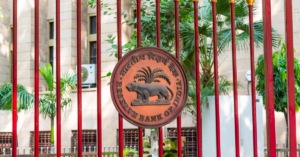The food delivery market is enormous, and that’s unlikely to change anytime soon. However, getting your business off the ground requires more than a love for the culinary arts. You also need to be business savvy, adaptable, and resilient if you want to succeed in this competitive market.
How to Start a Food Delivery Business in Houston
Starting a business in any large city already gives you a leg up. In Houston, there are many opportunities to explore, from ride-share delivery to fresh produce and groceries.
1. Ask Yourself, “What Makes My Business Unique?”
In Houston, you’re facing some hefty competition. At any time, your customers can order from Doordash, Uber Eats, GrubHub, or Postmates, so you have to come up with a unique angle.
If we consider a Houston favorite, Sunbasket, a meal delivery service that offers variety, what would you do to improve on their offerings? Would you deliver your products faster? Would you only use local ingredients? Even the smallest thing could make your service special to buyers.
2. Find a Reputable Courier for Same-Day Delivery
Every business that relies on delivery drivers to get their products from point A to point B needs to invest serious money into prompt, fast shipping methods that improve customer satisfaction.
It’s important that you find a reputable courier when you first start out because a late delivery could severely impact your business. If you’re looking for a courier service in Houston, use Dropoff for their same-day delivery service and commitment to customer satisfaction.
3. Map Out an Underutilized Delivery Territory
Houston keeps adding more and more suburbs on the outskirts of the city, and it can be difficult for these customers to come downtown or order groceries from certain delivery services.
By mapping an area for your service, you can capitalize on the market. Once word gets around that you’re one of the only (or only) services that deliver ready-made meals or groceries to their door, you’ll have even more customers. Plus, you’ll benefit from their online reviews.
4. Search for a Commissary Kitchen That Scales
Most US states won’t allow businesses to cook for customers inside a home kitchen. You’ll have to rent out a commissary/commercial kitchen to keep the business bureau satisfied.
If you’re going to search for a large kitchen anyway, you might as well rent one that’s bigger than your current customer base, if possible. You’ll want to have enough room in case a large influx of orders comes in, or you have enough capital and manpower to scale early.
5. Establish a Budget Before Purchasing Anything
It’s easy to get swept up in your business, but if you start buying things without consulting your budget, you may trip before beginning the race. Create a budget before you buy anything.
To get a sense of what you’ll need to start your business, conduct market research. Depending on the nature of your business, you may need specialty products, like utensils or ovens, and those can be expensive. However, if you set a budget, you should be able to get what you need.
6. Set Up Your Branding and Website Before Opening
A common startup mistake is opening without a clear branding strategy or website. You can’t consider your online presence second to your business, or you’ll fail to attract customers.
While setting up the rest of your business, think about what your delivery business will look like, from its colors, logos, and fonts. Then, establish a voice for your brand. Is it funny? Seriously? Branding takes a lot of time, so tackle this step ASAP if you want to market your service.




![Read more about the article [Funding alert] Mumbai Angels Network invests undisclosed sum in energy storage startup Indi Energy](https://blog.digitalsevaa.com/wp-content/uploads/2021/07/funding-32-1626246608672-300x150.jpg)



